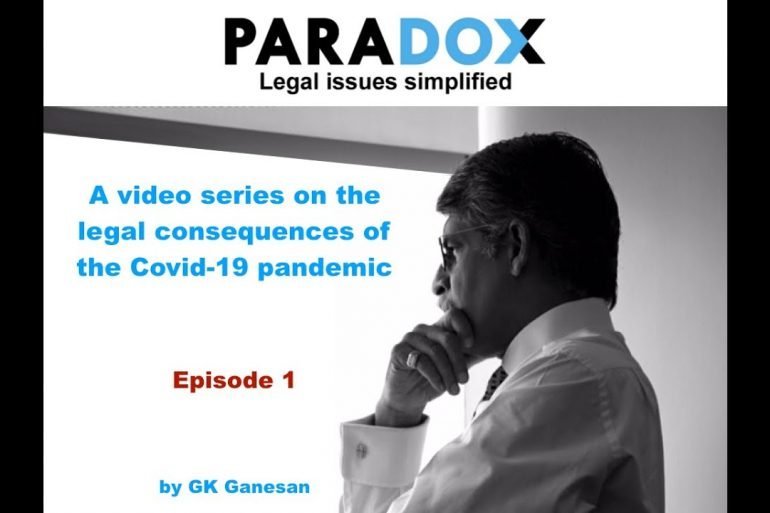Is there a way to protect yourself from a difficult contract during this pandemic?
How do you protect yourself – or your company – from the terrible financial consequences of this pandemic? This video shows you how.
This is the first episode of my series ‘The Legal Consequences of the Covid-19 Pandemic’.
This 23-minute video explains how you can protect yourself from a difficult contract during this pandemic.
It is easy to understand.
If you are a shipper, airline owner, transporter, or an oil and gas company spread across the globe, a supermarket owner, or run a vegetable farm, you need to watch this video.
Here, I cover the topic of Force Majeure
A Force Majeure event is an ‘unexpected event’.
A ‘force majeure clause’ in a contract deals with unforeseen events: it determines how parties have agreed to deal with such events. Force majeure clauses are widely used in international and commercial contracts.
This video explains, in lucid terms, at what a force majeure clause is, and how it works during this Covid-19 pandemic.
The industries to which this video is relevant are:
Airlines
Banking
Building Construction
Commerce
Distributors
Employment
Estate Agents
Finance
Futures Trading
Human Resources
Insurance
Real properties
Shipping
Suppliers
Transportation
But what if your contract has no force majeure clause?
Then you have to fall back on the concept of Frustration, which I explain in the video.
To find out more on related subjects…
(1) To find out more on what Legal Consequences the Covid-19 pandemic brings, click here.
(2). To check out if a commercial tenant protected during the Covid-19 pandemic, click here.
(3). To find out if force majeure or frustration apply to employer-employee relationships, click here.
To follow me on Facebook, click here





